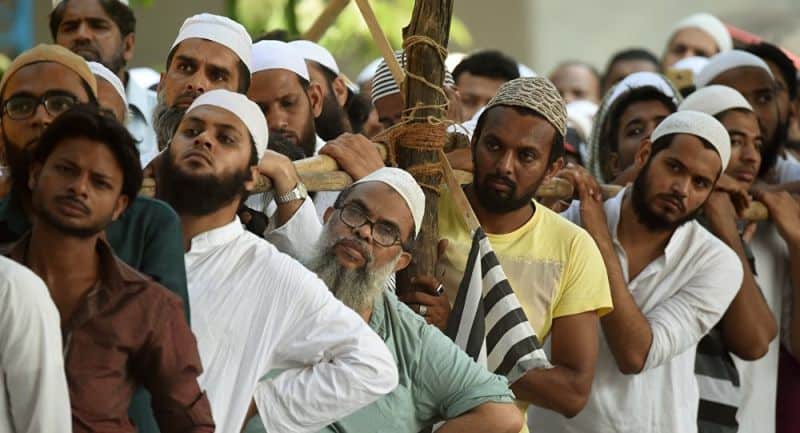Bengaluru: Muslim community in India has always been brushed aside since the partition, so are the women of this nation, who have no voice to raise in front of the reigning political parties of the nation.
With no importance given to this minority community, on the other hand, is proving to have drastic effects on the community as what we see today the Indian society has turned in to with various atrocities being reported against the community and women across the nation.
As per the recent statistics collected for Karnataka Assembly Polls, a total of just 22 women have been roped in for the upcoming elections.
BJP got four women, while Only 22 women and 23 Muslims have been fielded by the Congress, BJP and the Janata Dal (Secular) for the Karnataka assembly polls so far.
The three principal parties BJP, Congress and Janata Dal(Secular) have announced as many as 497 candidates for the upcoming electoral contest on May 12.
BJP has selected four women with none of them belonging to the Muslim community for its 154 candidates list while Congress fielded 15 women and 15 Muslims out of its 218 candidates list and the JD(S) has bagged in seven Muslims and four women in its list of 126 candidates.
Women comprise of nearly 50% of the nation’s total population out of which the Muslim community comprises of 13% from the overall population according to the 2011 Census but these groups do not total up for even 5% of the total candidates announced.
According to the Political leaders, victory is attained with the societal representation of the nominated candidates and only six women, 11 Muslims were elected in 2013 Karnataka’s Assembly election.
The election of more Muslims could increase as the party is yet to nominate more candidates for six constituency which also includes Shanti Nagar said State Congress President Dinesh Gundua Rao.
“Victory in the polls was the only consideration in our mind while picking candidates,” he said.
While JD(S) leader HD Kumaraswamy, said the party are yet to increase its Muslim-women candidates as the party has only announced candidates for just 126 seats until now. “We will ensure that the number of Muslims and women is increased in our second list of 98 candidates. In all, we hope to prop up 15 candidates from each group,” he added.
Speaking on under-representation of women candidates as well as other muslims in electoral politics, noted writer BT Lalitha Nayak says the patriarchal structures in the Indian society are still intact though few changes can be seen.
Observing the societies inequality and gender based differences, she said: “Unfortunately, there is a feeling that women will not be able to compete against men – especially in politics,” and as victory is the only criterion that matters to political parties, this situation is unlikely to change soon.”
She says this is one of the primary reasons were women are perceived as a weaker class and unfit to enter Politics.
She adds, “For example, if a female politician distributes liquor among her supporters in the same way as some male candidates do, she would be boycotted even by women voters,” and that is how the society works in India.
But this could will not change by just giving women reservations, in order to bring in women power in to politics, the Election Commission needs to implement stricter rules for their representation.
“This can become a level playing field for women only if the cap on political funding is strictly enforced, and criminal activity is curbed,” said Nayak.
Recalling Muslim candidates winning in 1978 elections, former legislator Qazi Arshad Ali, said that year witnessed the highest number of Muslim candidates being elected in the Karnataka Assembly.
“As many as 15 Muslim candidates won back then, as opposed to 11 in the 2013 elections,” he said.
Speaking of the under-representation of Muslims in the Karnataka Politics he said, “Although Muslims account for around 13% of the population, they are spread evenly across the state… they are not concentrated. There are only two seats in the state where Muslims are a majority – Chamaraja in Mysuru district and Gulbarga North.”
And also the increasing competition between the political parties is also one of the primary reasons for their under-representation said Mr Ali.
“When the Congress was the dominant force, it could get anybody elected. But that is no longer the case. The number of Muslim representatives has declined because the prospect of victory is now the only criterion for consideration,” he added.

